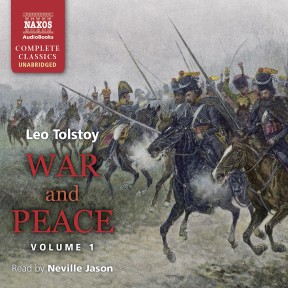The NAB Blog
Tolstoy On The Treadmill
By Anthony Anderson
31 May 2018
Recently an article appeared on the BBC website with a list of good reasons to listen to audiobooks. There is, of course, no dissent from us at Naxos AudioBooks – we have loved the format even before the inception of the label back in 1994. However, the feature covered some interesting points which merit greater consideration.
The whole custom of storytelling is one deeply embedded in human society
It suggests that audiobooks can be consumed while doing other things. This is borne out by recent consumer research. Most consumption is done while engaged in other activities such as housework or exercising. The hands-free nature of audiobooks (a clear advantage over books or e-readers) does lend itself to this – try reading a paperback while kneading bread dough!
Audiobooks add an additional layer to the printed word through the voice (and interpretation) of the narrator. The reader largely supplants the ‘brain voice’ which is engaged when reading the printed page. If the narrator is worth his/her salt – and many are – this often enhances the consumer experience, and can make the book more accessible and entertaining. One of our consistently popular titles – James Joyce’s Ulysses – is a notoriously difficult book. With the voices of Jim Norton and Marcella Riordan, the listener is immediately engaged and wants to stay with these voices till the book’s conclusion. (Yet, how many times have print editions of Ulysses been frustratedly put back onto bookshelves before completion?)
Audiobooks initially were created for the blind and partially sighted and they are just as relevant to such people today. Furthermore, they can often open up the world of literature to those with reading difficulties such as dyslexia. They can also alleviate loneliness, something that is more prevalent in modern society than we may like to admit.
For others audiobooks can make a long and tedious journey much more tolerable. Gridlocks on the motorway or being stuck on a stationary train can become almost enjoyable with an audiobook at hand, giving the listener a good excuse to lose themselves in another world and progress through the latest romance or thriller.
There is something very soothing about being read to. It comes from a strong collective childhood memory of being tucked up in a warm bed, while a parent would dutifully deliver a bedtime story. Not that this is confined to children – listening to an audiobook can be a great way for people of all ages to get off to sleep at the end of a busy day. The BBC piece suggests that audiobooks can aid insomnia – as recent media coverage suggested, another common problem in today’s society.
The whole custom of storytelling is one deeply embedded in human society. The oral tradition, as exemplified by the works of Homer, was for many centuries the only way in which we could hear about other worlds, both earthly and divine. Although we have a plethora of ways in today’s multimedia world of ingesting stories, the essential power of storytelling through the voice of a skilled narrator makes the audiobook as relevant as ever.
« Previous entry • Latest Entry • The NAB Blog Archive • Next entry »
